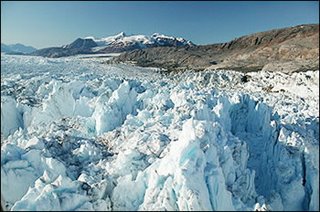Green House Gases
In a report by the EPA titled US Inventory of Greenhouse Gas Emissions and Sinks from 1990 to 2004 CO2 emissions rose 19.6%.
Methane actually shrank 9.9% over the same period. The decline was buffered by an increase in "manure management" with an increase of 26.4%, the feeding of our livestock on commercial feeding lots.
N2O also was in decline, giving a 2.1% decrease. "Manure management" increased over the same period of time 8.8% and human sewage emissions increased 24.2%.
HFC, PFCs and SFs discharge increased a whopping 57.5%.
All total the reports indicates there was a 21.1% increase of green house gas emmissions over the measured period of time. No comment is necessary as the facts speak for themselves.

